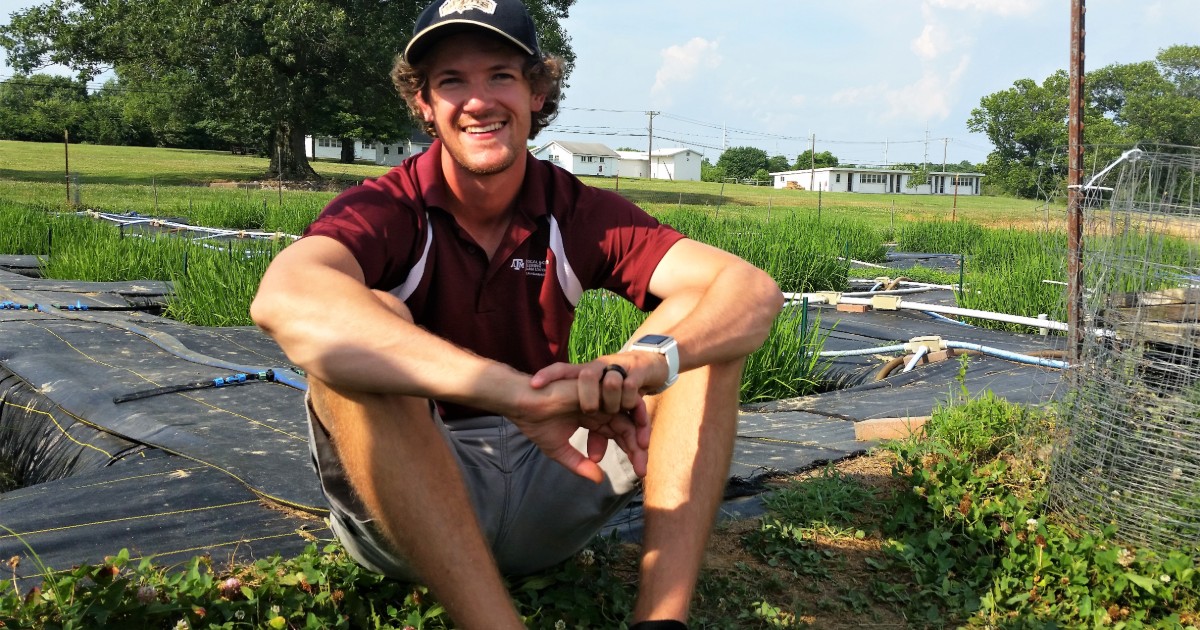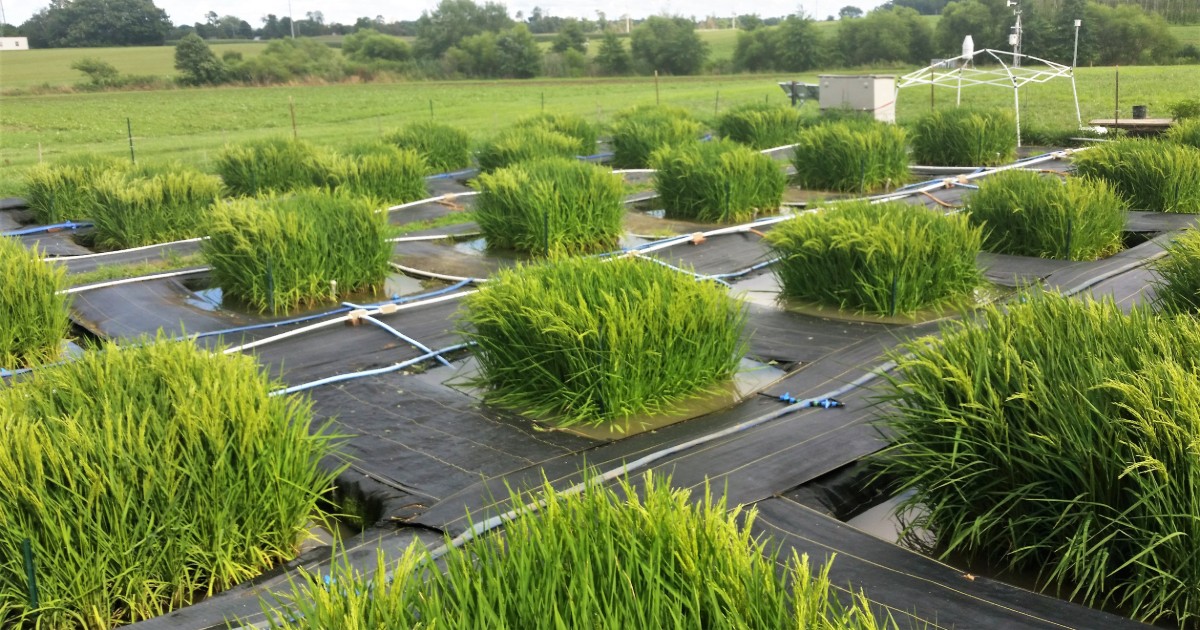
Category: Graduate Students

Graduate student Frank Linam investigates paddy soil chemistry and rice root-soil interactions
September 04, 2020 Written by Dante LaPenta | Photos courtesy of Frank Linam
On the University of Delaware Farm in Newark, Department of Plant and Soil Sciences faculty and student researchers are investigating nutrients and toxins in rice — a staple crop for nearly half of the people on our planet.
Graduate student Frank Linam is focused on how the incorporation of rice husk — a byproduct of the milling process — impacts paddy soil chemistry and rice root-soil interactions. The milling process is a key step in post-production of rice; the crop is husked, removing the chaff [outer husks] of grains. Linam is taking a deep dive into different types of rice husk applications — pyrolyzed [decomposed at elevated temperatures], burned and fresh. He wants to know how these approaches affect the plants’ ability to acquire essential nutrients like silicon and iron while excluding toxicants such as arsenic and cadmium.
 “This research is important because intensive cropping systems result in depletion of nutrients and accumulation of toxins in soils,” said the plant and soil sciences Ph.D. student. “Understanding theoretical and practical soil chemistry and plant-soil interactions is essential to address these issues.”
“This research is important because intensive cropping systems result in depletion of nutrients and accumulation of toxins in soils,” said the plant and soil sciences Ph.D. student. “Understanding theoretical and practical soil chemistry and plant-soil interactions is essential to address these issues.”
Additionally, loss of soil productivity affects us all, but particularly impacts populations in developing countries relying on local food production, which accounts for the majority of rice growth and consumption.
Linam gravitated to soil science because of the opportunity to study problems both in the laboratory and in the field.
“I love this work balance,” noted Linam. “Because soil science is so interdisciplinary, I have worked on projects in the lab, at our rice paddy site and in Fischer Greenhouse. It provides an ideal setting to confidently answer scientific questions and provide real-world solutions to some of the most pressing issues facing people worldwide.”
He credits UD professors Angelia Seyfferth and Don Sparks for expanding knowledge and developing more refined research plans.
“My advisor Dr. Seyfferth has allowed me to accomplish everything I’ve put my mind to by providing guidance, support and knowledge; she’s thoroughly encouraged me to pursue a life in academia,” said Linam, who graduated from Texas A&M University in 2018 with a B.S. in Environmental Plant and Soil Science. “And Dr. Sparks has been very inspirational to me and has taught me much about the purpose of science and the role professors play in students’ lives”
Graduation is still a ways off for Linam, but he plans to continue technical research projects on plant-soil chemical interactions at a national lab. Eventually, he has his eye on applied international development projects focused on agriculture and the environment.
“Frank is an outstanding graduate student, and I feel lucky to have him in my lab,” said Seyfferth. “He is smart, curious, collaborative, and a hard-worker, which, in my view, are among the most important characteristics of a successful scientist. I am excited to see him progress during his Ph.D. here at UD and in his future career.”
